I have a Ruby script that I inherited, where its reading a csv file containing "TV programs" that have a start time, and end time in this format:
start_time = 20:00:00
end_time = 20:45:00
The goal is to assign each TV program a "time-slot" (one of the following values) based on the start and end times:
23:00:00 - 05:00:00 = Late Night = l
05:00:00 - 09:00:00 = Morning = m
09:00:00 - 17:00:00 = Day Time = d
17:00:00 - 20:00:00 = Evening = e
20:00:00 - 23:00:00 = Prime = p
Right now I have a giant if/else statement that is about 100 lines of Ruby Code:
if(start_time >= 50000 && start_time < 90000) #start time is between 5 and 9 am
if(end_time <= 90000)
@timeSlot = ["Morning"]
puts "timeSlot = [Morning]"
elsif(end_time <= 170000 && end_time > 90000)
@timeSlot = ["Morning", "Daytime"]
puts "timeSlot = [Morning, Daytime]"
elsif(end_time <= 200000 && end_time > 90000 && end_time > 170000)
@timeSlot =["Morning", "Daytime", "Evening"]
puts "timeSlot =[Morning, Daytime, Evening]"
elsif(end_time <= 230000 && end_time > 90000 && end_time > 170000 && end_time > 200000)
@timeSlot =["Morning", "Daytime", "Evening", "Prime"]
puts "timeSlot =[Morning, Daytime, Evening, Prime]"
else
@timeSlot =["Morning", "Daytime", "Evening", "Prime", "LateNight"]
puts "timeSlot =[Morning, Daytime, Evening, Prime, LateNight]"
end
elsif (start_time >= 90000 && start_time < 170000)
.........
........
end
Im trying to change the implementation so the code is easy to maintain and extend and read. My first try at this problem was to solve it visually using a matrix in excel as shown.

This is the problem displayed visually. Now the question is how to do this in code in an efficient way?
Any advice is welcome